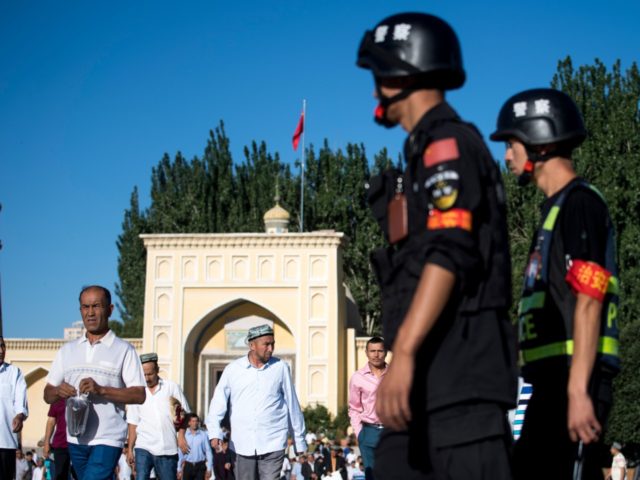Belgium this week dispatched a diplomat to the Xinjiang province of China to search for a Uighur woman named Horiyat Abula and her four children, who Chinese police disappeared from the Belgian embassy in Beijing last month.
The clear inference is that Belgium fears the refugees have been dragged back to the infamous re-education camps where a huge number of Xinjiang’s Muslim residents are incarcerated.
The woman’s husband Abdulhamid Tursun is a political refugee in Belgium. He sought asylum in 2017 while on a business trip to Turkey because his family warned he might be arrested upon returning to Xinjiang and sent to the camps. He was granted asylum in 2018 and found employment with a Belgian company.
He told AFP in an interview published on Wednesday that he has not heard from his wife since May 31.
“I am worried about their safety. I hope they can safely come be at my side as soon as possible, and our family can reunite,” said Tursun.
Tursun explained that his wife and the children were in Beijing to obtain family reunification visas when the Chinese police began harassing them. Upon learning the visas would take at least three months to approve, Abula panicked and refused to leave the Belgian embassy.
What happened next is a matter of some debate, and potentially lasting shame for the Belgian government. The embassy says it asked Abula to leave because it could not shelter her indefinitely. The police were called after she refused repeated requests and wound up refusing to budge from the embassy yard, at which point the embassy accused her of staging a political “sit-in.”
Critics say it was outrageous for the Belgians to force Abula to make multiple trips to Beijing with her children, the youngest of whom is five years old, because travel outside Xinjiang is one of the activities that marks Uighurs for special attention from Chinese authorities and gets them hustled off to detention.
The Belgians have been accused of caving to political pressure from China and putting the family in jeopardy. Tursun claims he was bluntly told “we don’t want to be in conflict with China” when he asked Belgian officials for help rescuing his wife.
Abula and her children were marched back to their hotel by Chinese police in the small hours of the morning, placed under house arrest, and then physically dragged into a car. According to Tursun, her last words to him before her cell phone went dead were a resigned greeting to the Chinese police barging into her hotel room: “It’s you guys again.”
Tursun has not been able to contact his wife since then and has received disturbing reports of Chinese police raiding his family home in Xinjiang and interrogating his relatives. The Belgian government has been reluctant to specify who called the Chinese police and allowed them into the embassy, both highly irregular actions under common diplomatic protocols.
“The case exposes the additional risk Uighurs in China face even if they want to seek help from foreign governments. The Belgian Embassy set an extremely bad example of how governments put economic interests above human rights,” Patrick Poon of Amnesty International told AFP on Wednesday.
Other critics of Belgium’s conduct noted that international law forbids sending asylum seekers to countries where they could be tortured. Both the Belgian government and non-governmental organizations appear to have given Abula confusing advice on how to obtain her family reunification visa, a complex process because the Chinese government has stymied her requests for a passport since 2017.

COMMENTS
Please let us know if you're having issues with commenting.